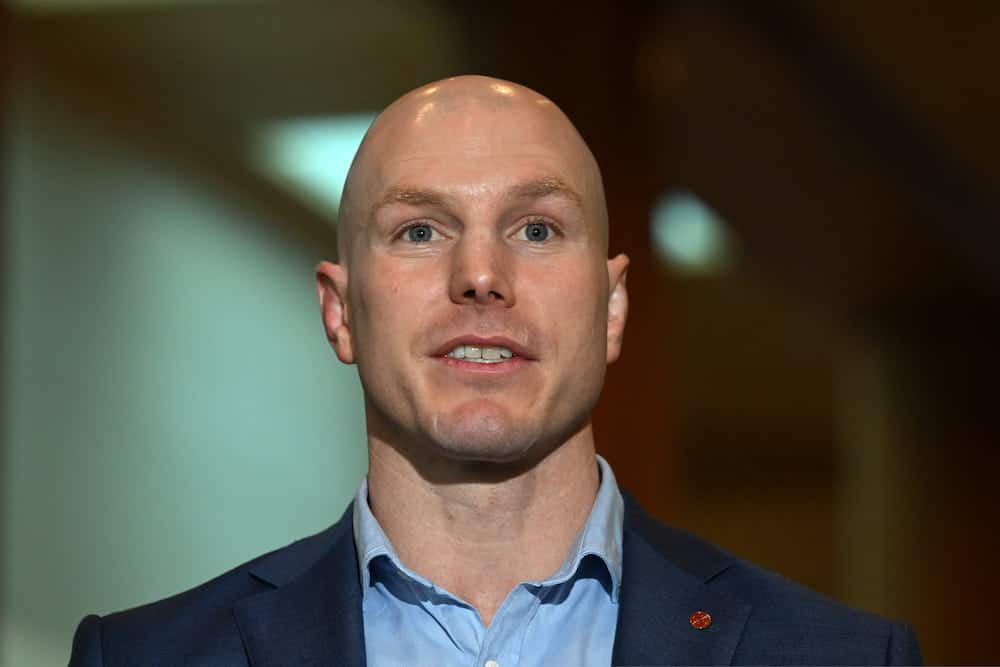Senator David Pocock (Independent) has welcomed some measures of the Albanese Government’s first Budget, but is concerned other measures will hurt household budgets, and insists the government must increase welfare. His thoughts on measures for the ACT have been added to our earlier article.
Budget breakdown
Framed as a “responsible reset”, this “bread and butter” budget was all about delivering Labor’s election commitments.
For me, the priority was one: making sure the ACT wasn’t overlooked and left even further behind as it has been for so long; and two: tackling housing affordability.
Housing has been the number one issue raised with me by our community, and that I’ve been pushing with the Government, so it was good to see it at the heart of the budget.
Obviously, it was disappointing to find that waiving the historic housing debt wasn’t included, but I’m really pleased to see Senator Gallagher re-open the door to including it in a future budget. I’ll be continuing to push that hard.
To give credit where it’s due, the Government has delivered on its promises, which is great to see, and housing was a welcome centrepiece, even if there’s still a lot more to do.
But in playing it safe, the Government has also avoided dealing with a few areas of pressing need, putting off some really big, tough debates that sooner or later we are going to have to have.
Debates around the future of the Stage 3 tax cuts, around taxation more broadly, around revenue.
Around how we keep delivering on the essential social compact between taxpayers and government that is really what a budget is all about.
I look forward to engaging in those debates and pushing the Government to show greater ambition in tackling these challenges.
Big ticket budget items
There were a couple of big and welcome budget elements, including the new National Housing Accord that aspires to deliver 1 million homes in five years; expanded early childhood education subsidies which are set to benefit some 23,200 families in Canberra; an increase in paid parental leave to 26 weeks; and cheaper medicines.
It was terrific to see a genuine funding commitment to give effect to the Uluru statement from the heart: some $75 million for the referendum on a Voice to parliament, and $5.8 million to establish a Makarrata Commission for truth and treaty.
There’s also quite a large investment into aged care – some $2.5 billion – to deliver on commitments to get RNs into aged care facilities 24 hours a day, seven days a week, as well as underwriting a pay increase to the aged care workforce.
And $1.7 billion to improve women’s safety initiatives, together with the return of gender responsive budgeting, are also fantastic to see. There’s more to do, but this is a welcome start.
Budget bad news and gaps
The federal budget also contained a fair whack of bad news that will hurt household budgets.
Rising inflation, rising interest rates, slowing GDP growth, rising unemployment and growing cost-of-living pressures are all cause for concern.
This last one is a real killer. The Government is forecasting a 56 per cent rise in electricity prices, a 44 per cent rise in gas prices, and a jump in the cost of both groceries and rent.
The Treasurer is saying we’re unlikely to see a rise in real wages for at least another couple of years.
The budget also points to a huge increase in the cost of the NDIS, which is forecast to reach $102 billion per year by 2032.
But despite all this, the government hasn’t done anything in terms of raising the rate for Jobseeker, Austudy, or Commonwealth Rent Assistance.
Now, I absolutely understand and commend the need for responsible economic management. But equally, I simply don’t accept that we can let this crisis continue, especially for the most vulnerable members of our community.
We can’t let 3 million Australians remain in poverty, including more than 38,000 people right here in the ACT, of which 9,000 are kids.
So what does this mean?
What’s next
We need to gear up for some hard conversations and harder decisions ahead of the next federal budget.
We need to talk about redesigning the Stage 3 tax cuts, about accelerating the transition to all electric homes and businesses, and tightening tax arrangements for multinationals (there was a good first step on this in Tuesday night’s budget).
If we are to fund the things our community needs, we also need to look more broadly to find solutions.
We need to look at how we can better capture the benefits of the natural resources that belong to ALL Australians. It is also imperative that the Government stop getting Australian taxpayers to spend billions subsidising uber-profitable resource companies.
Instead, we need to be spending a whole lot more to put an end to species extinction, to protect against climate change and the invasive species that cost our economy and our environment so dearly.
We’re going to have to have some tough conversations about what services we value as Australians and how we’re going to pay for them now and into the future.



